Protecting the Malawi-Zambia Landscape
Habitats cross borders—so do poachersa life-changing transformation takes one man from poacher to landscape steward
a life-changing transformation takes one man from poacher to landscape steward
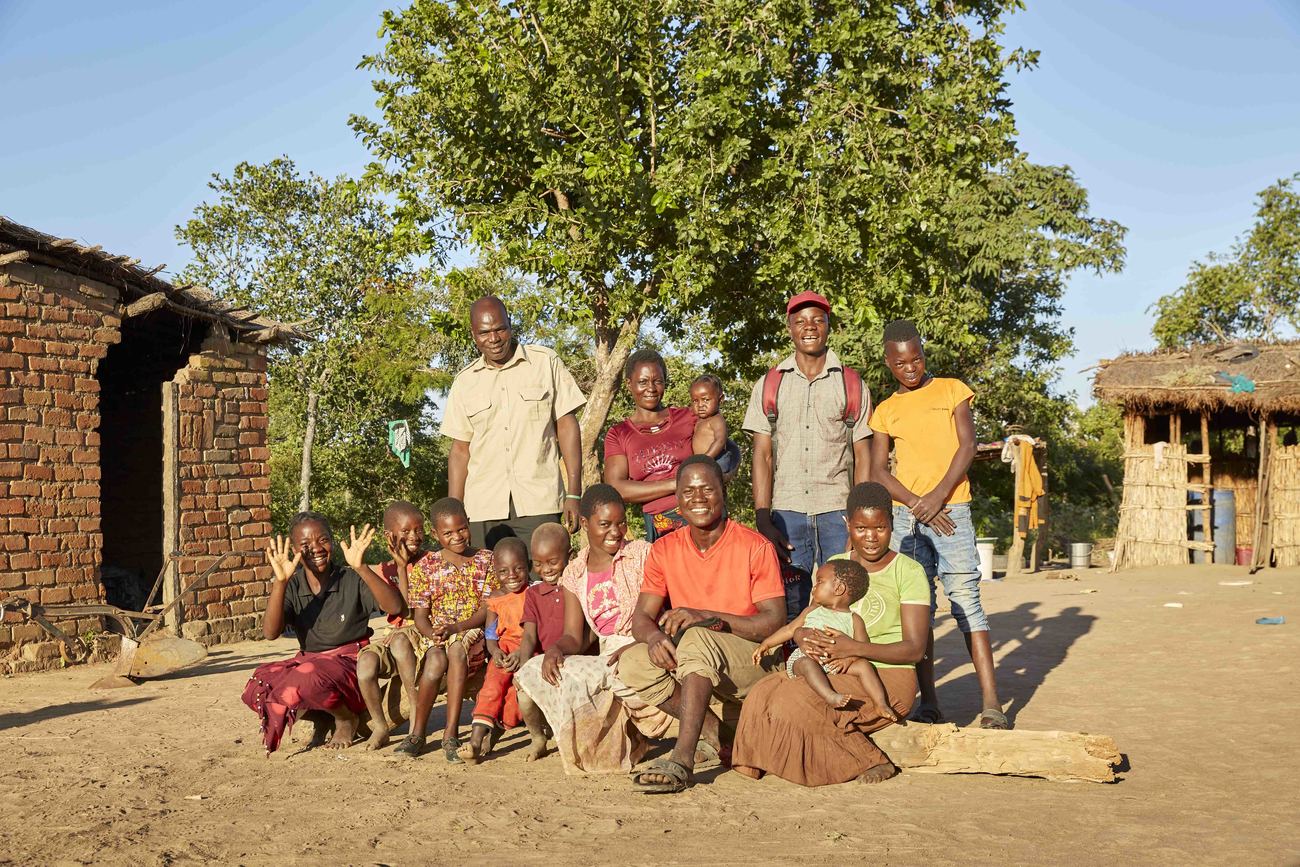
Smoke Phiri looks like an archetypal henchman. His massive frame towers over his nine children. At age 50, he seems to have lost none of his strength or virility. As he talks, he gestures confidently with large, calloused hands. Smoke is, frankly, a little intimidating. And that’s not surprising, because for two decades, Smoke was a prolific poacher.
Photographer Julia Gunther and I met Smoke on a project visit to chiefdoms in the Malawi-Zambia Transfrontier Conservation Area (TFCA). The project is a new partnership, started in 2021, between IFAW and Community Markets for Conservation (COMACO), funded by Germany’s Agency for International Cooperation.
Its name is a mouthful: “Enhancing Climate Resilience and Cross-Border Collaborations in Kasungu/Lukusuzi TFCA,” but its goals are ambitious and necessary.
The project focuses on small-scale, low-income farmers in the Chikomeni and Mwase Mphangwe chiefdoms, tucked between Zambia’s Lukusuzi and Malawi's Kasungu National Park. The chiefdoms span a wildlife corridor between the unfenced parks across which buffalo, hyenas, elephants and other species travel throughout the year.
Chronic food insecurity, driven by worsening climate change and few markets for farmers to sell their crops, has forced many into poaching these animals.
It’s no surprise the TFCA was prime hunting ground for poachers like Smoke, who killed buffalo, kudu, warthogs and one or two elephants a week. He’d sell the ivory as quickly as he could. Bush meat would be eaten or sold at local markets. Smoke stopped poaching in 2003. The reason he stopped is why we are talking with him in front of his red brick house, surrounded by the fields of sunflowers, soya beans and groundnuts he now grows.
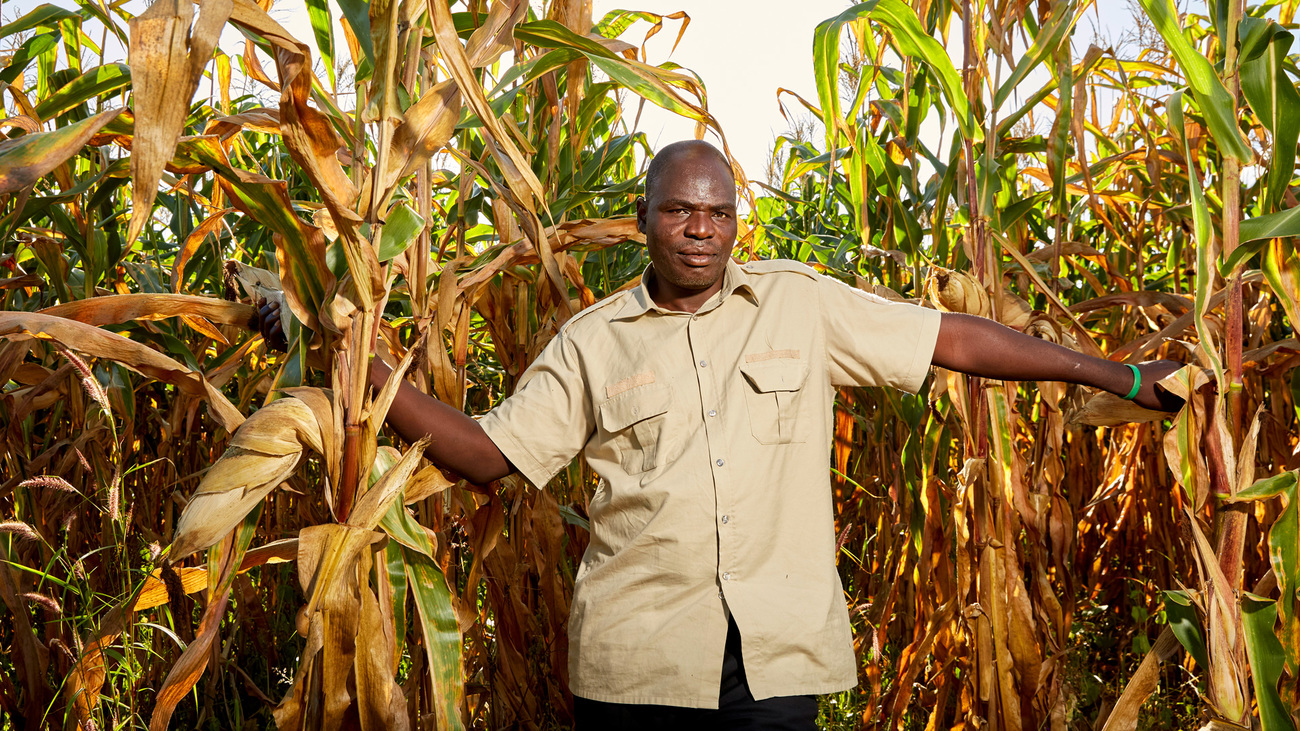
Smoke, other farmers and former poachers we spent time with all said much the same thing: For people to change, they need viable alternatives. Telling someone to stop poaching when it’s their only source of income does not work. Lecturing farmers on their destructive practices, without showing them how to do things differently, does not work. I can tell you that, after travelling through this remote part of Zambia, where there are precious few markets, roads are impassable during rainy season and most people run out of food months before they can harvest their next crop, it really is that simple.
This is why COMACO’s approach has been so effective. When farmers don’t know how to increase the fertility of soil, COMACO shows them how. Where farmers cannot sell crops because they lack access to markets, COMACO creates markets.
COMACO retrained Smoke to become a farmer, something he had no experience in—he’d been a poacher since age 13. After learning new skills, including vegetable gardening, beekeeping, carpentry, poultry and conservation farming, Smoke traded his rifle and shotgun for a hoe and a few bags of seed, and returned to his home village to start planting. He underwent a remarkable transformation, from destructive force to steward of this important landscape.
Although Smoke is one of the more dramatic examples of transformation, COMACO doesn’t just focus on poachers. In fact, most people they’ve worked with for the past 19 years are traditional farmers they’ve retrained in smart agricultural techniques—methods which improve crop yields and the environment without chemicals or fertilisers.
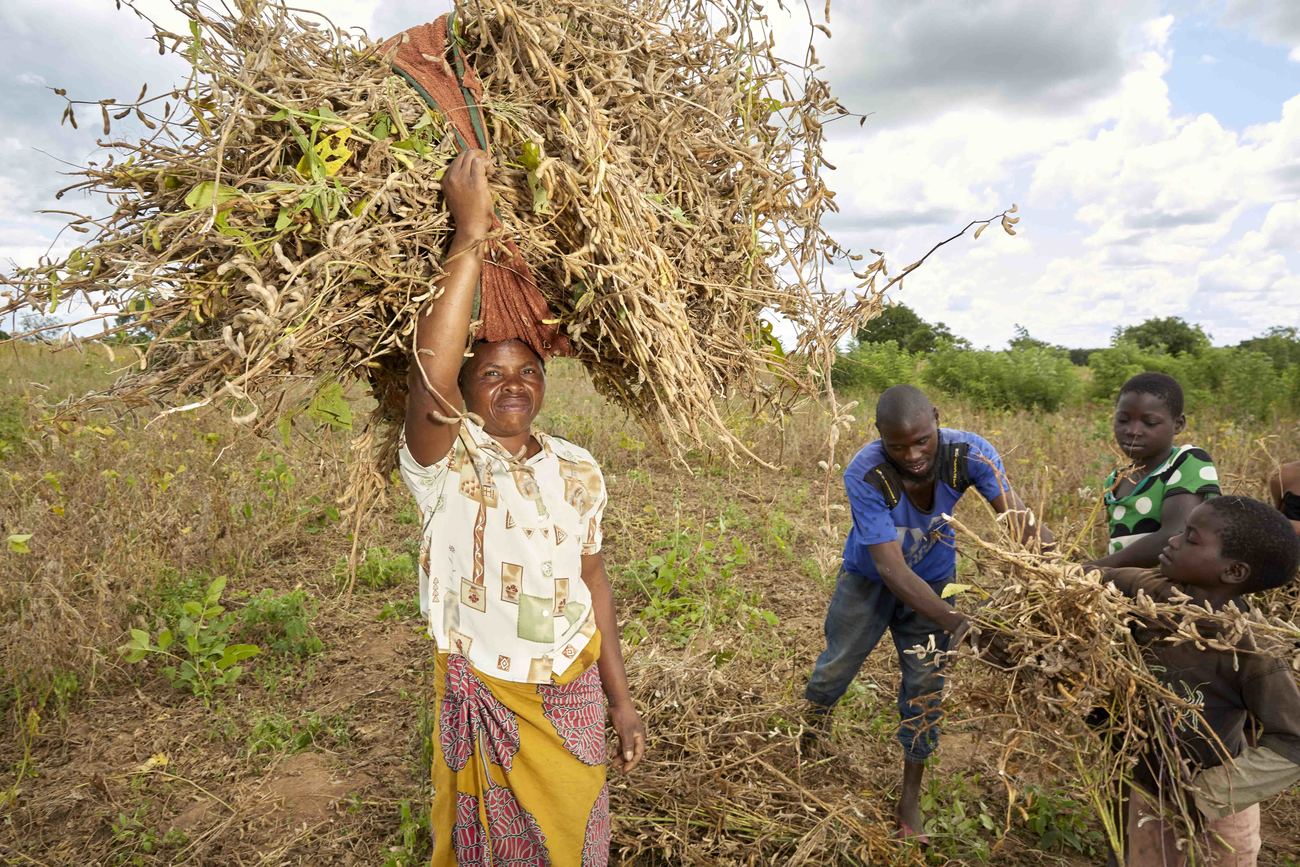
Everywhere we went, farmers were keen to tell me what they had learnt: How to till the land as little as possible by using a ripper instead of building ridges; how to use organic material such as leaves or branches as fertiliser; how to plant nitrogen-fixing trees like Gliricidia sepium; how keeping groundnuts (peanuts) in their shells is a great way to avoid the spread of aflatoxin, a poisonous fungus that can cause serious illness or death. These are simple, affordable solutions that help increase the quality and quantity of crops.
Today, COMACO buys Smoke’s crops above market price and ships them to their massive factory in Lundazi, the capital of Lundazi district, along with harvests from thousands of other farmers. On a tour of the plant, we saw warehouses filled with tons of rice, groundnuts, maize, soya and beans.
There’s a quality control laboratory and department that develops new products. At a milling station, workers rushed to finish a 300-ton order of maize and soya porridge mix for Mary’s Meals, an international charity that runs school feeding programs. At 150 tons per month, COMACO is now Zambia’s largest producer of peanut butter. Dozens of COMACO’s It’s Wild! products line shelves of supermarkets across Zambia. The scale of it all is impressive.
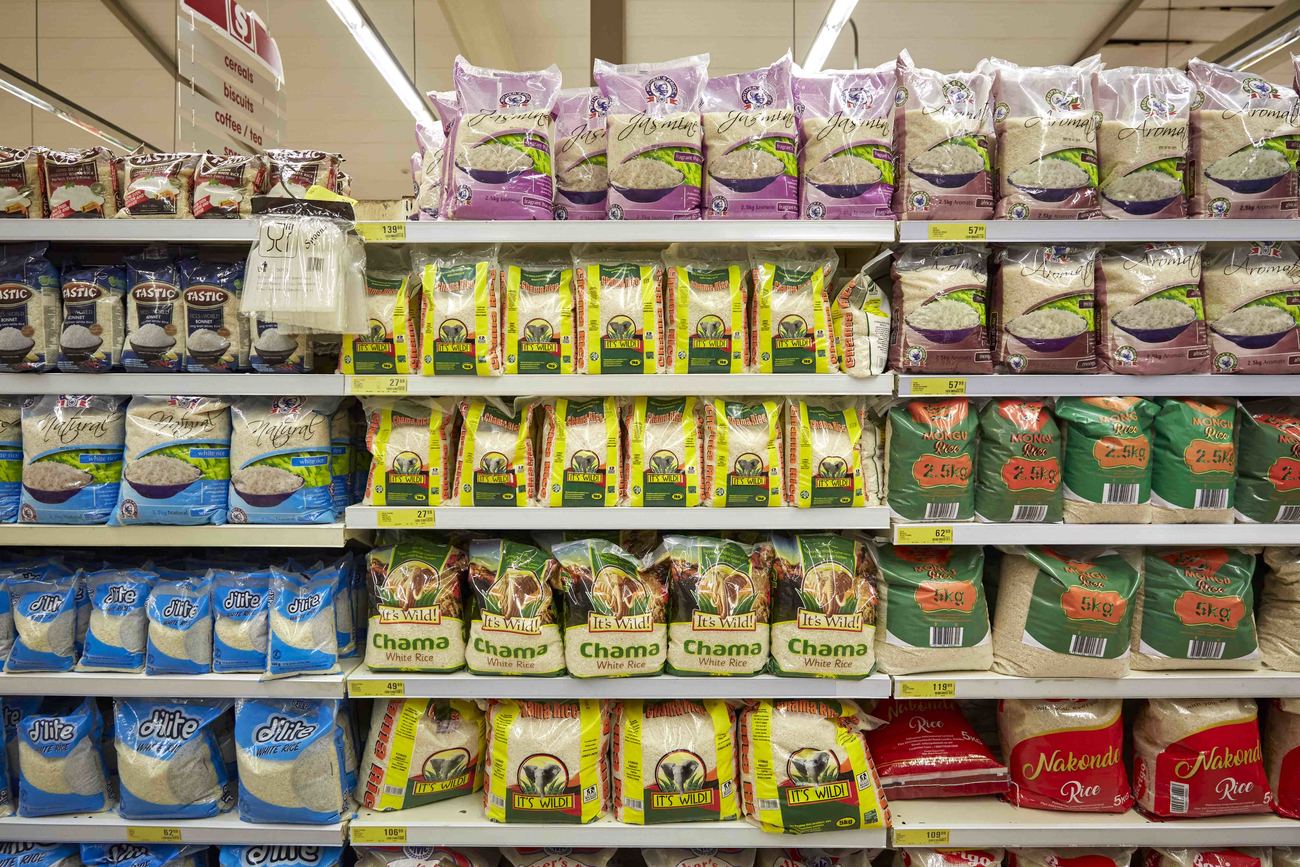
The positive impact of these transformations is immediately clear. Thanks to projects like this one, small-scale farmers can earn a living growing nutritious, chemical-free, high-value crops that provide them with income and food security, while caring for the land and environment.
The project, of course, has its challenges. The catchment area is enormous and many farmers live in remote villages. As with any community project, you rarely get 100% commitment. But when you look at everything this project has solved, any remaining issues seem trivial. The benefits are obvious to most. I think that is because many participating farmers share their experiences with others and help recruit new candidates. Many of COMACO’s fieldworkers are farmers themselves, a key element in building trust for implementing a project of this kind.
Smoke is now chair of the Transformed Poachers Association and travels to Lundazi prison to coach incarcerated poachers. The two other former poachers we spoke with, Ronald Mwale and Edison Mphande Phiri (he is not related to Smoke), seem happy to have stopped. Not only do they make more money as farmers, but growing crops is much safer. On the last poaching trip he ever organised, Ronald and four fellow hunters ran into a ranger patrol. During the ensuing firefight, all four of his companions were killed.
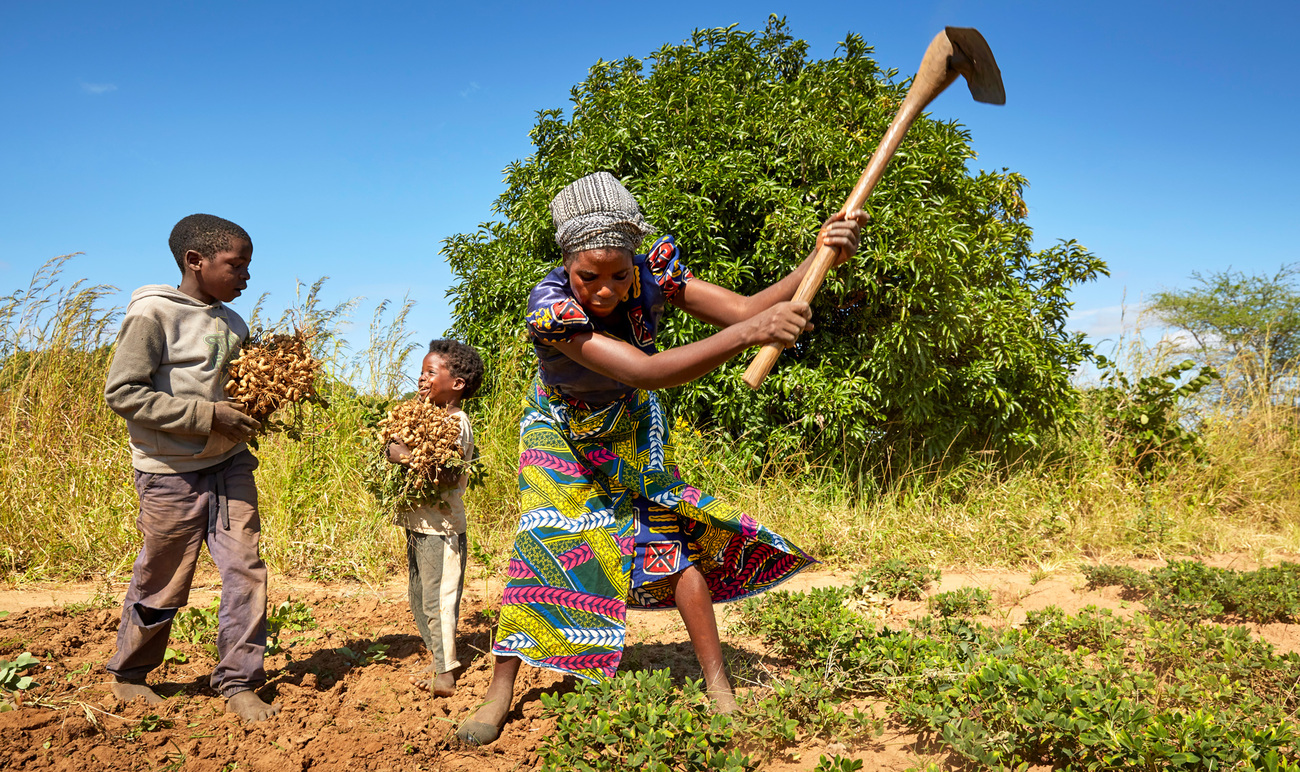
Elita Mwale, a farmer with seven children, proudly showed us her new house, ripper, two oxen, ox cart and the shop she was building on land she bought—all paid for with money made selling her crops to COMACO.
In 2021, the rains came late, and Fainess Mgulude could not harvest her crops until later in the season. In previous years, a delayed harvest would have been catastrophic for Fainess, a widow with five children. But since she started using methods learnt from COMACO, she has not run out of food once. A delay in rains no longer impacts her as she has enough to last her family the entire year.
There are plenty more examples. You can see changes everywhere in the TFCA: from harvesting elephants to sunflowers, from rammed earth to iron sheets, from soil ridges to gentler ripping, from hunger to surplus, from outlaw to advocate.
I write about Smoke, Ronald, Edison, Fainess and Elita not for effect or emphasis; I write about them because they deserve to be recognised for the transformations they’ve experienced. For them and others whose existences depend on their relationships with the natural world, their transformations have been life-changing.
—Nick Schonfeld
IFAW is the sole author and the views expressed are IFAW’s and not those of GIZ.
Related content
Our work can’t get done without you. Please give what you can to help animals thrive.